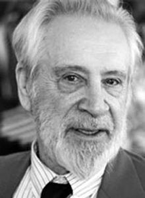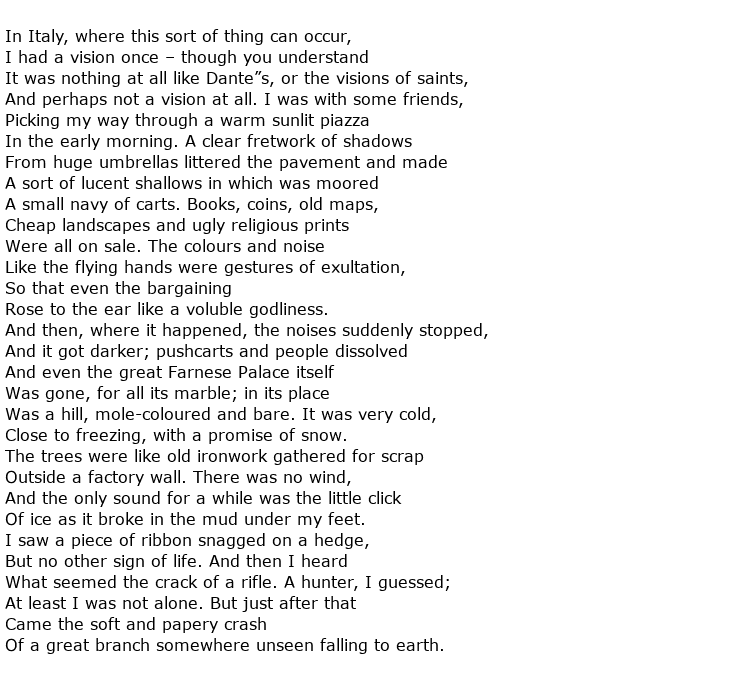 Anthony Hecht was an American multi-award winning poet of German-Jewish origins whose writing was much influenced by the terrible events that he experienced in Germany towards the end of the Second World War. Post-war he worked as a journalist for the military paper The Stars and Stripes and had a number of teaching assignments at various educational establishments.
Anthony Hecht was an American multi-award winning poet of German-Jewish origins whose writing was much influenced by the terrible events that he experienced in Germany towards the end of the Second World War. Post-war he worked as a journalist for the military paper The Stars and Stripes and had a number of teaching assignments at various educational establishments.
He was born Anthony Evan Hecht on the 16th January 1923 in New York City and went to school with a boy who would also become a famous writer – Jack Kerouac. His school days were unremarkable but he managed to gain a place at Bard College, reading English literature. With ambitions to become a poet himself he was enthralled by the work of T S Eliot, Dylan Thomas and W H Auden amongst others. Hecht’s parents had other ideas for their son but he was not dissuaded. His literary career would have to wait though as, having completed his studies, he was drafted into the US Army in 1944 and sent to fight in Europe.
He saw plenty of action but the most disturbing times of his military service was when his unit were part of the liberating forces at the concentration camp at Flossenbürg in Bavaria, close to the Czech border. This had been a work camp for thousands of inmates but many were deliberately killed, or worked and starved to death. Hecht was appalled at what he found and heard many first-hand accounts of the terrible suffering of those that survived this ordeal. Later on he was quoted as saying:

His next posting was to Japan where he worked for a time as a journalist on the Stars and Stripes but he was back in the States by 1946. He then set about working on his career as a poet while also studying for his Masters’ degree at Columbia University. He taught for a while at the Iowa Writers’ Workshop but had to give up this work when he found that he was suffering from the after effects of his war time experiences. Later on, in 1959, he spent time in hospital being treated for a nervous breakdown.
It took until 1954 for his first collection of poems to be published and this was titled A Summoning of Stones. It was clear that Hecht was adept at injecting a clear knowledge of historical events as well as a mastery of the different forms of poetic presentation and his style was compared favourably with that of Auden who had, of course, been one of his early influences. The two had become friends shortly before while travelling in Italy.
Perhaps he wrote a poem called The Hill during these travels. It mentions Italy in the opening line and the poem is written in prose-like style with scant regard for any particular structure or rhythm. Here is the long opening verse:

Hecht’s considerable output of written work won him numerous honours and awards. His second volume of verse, The Hard Hours, won the Pulitzer Prize for Poetry in 1968. Between the years 1982-84 he enjoyed the top honour, being appointed Poet Laureate Consultant in Poetry to the Library of Congress. Other notable awards were the Bollingen Prize in 1983 and the Robert Frost Medal in 1999.
Anthony Hecht died on the 20th October 2004 at the age of 81.

